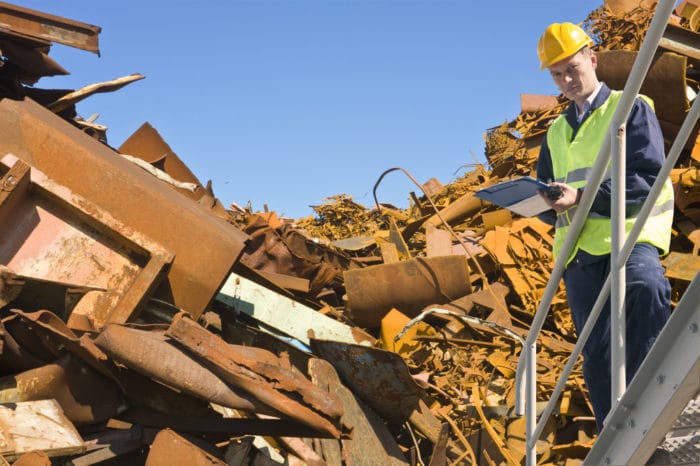Why We Love It
-
$88,040Potential Avg. Salary
-
12.5%Job Growth Rate
-
Growing DemandJob Outlook
-
Good Entry Level SalaryCareer Attribute
A waste management engineer coordinates and manages waste disposal, waste collection and recycling operations. This may also include supervising waste management schemes like landfill sites and the effective and secure transportation of waste materials in accordance with legislation.
Recommended Schools
What is a Waste Management Engineer?
Duties
A waste management engineer undertakes the following:
- Working alongside other team members, create seamless and well-designed waste disposal plans.
- Write and monitor different types of necessary paperwork such as statistical records and reports.
- Keep track of pollution levels in waste disposal sites.
- Oversee and administer waste management budgets for efficient utilisation of allocated funds.
- Ensure that all waste management measures are in keeping with current waste disposal, handling and transportation legislation.
Day In The Life
Depending on where you are working, a career as waste management engineer may take you to a landfill site, lab or to a federal office. You will largely be involved with a city’s waste removal systems and their schedule. Overseeing city and county workers as well as disposal transportation will require a collaborate approach in line with other waste management companies to ensure smooth operations. As an environmental engineer, you may also run a wide variety of tests on waste materials to ensure that soil and water resources are unaffected by hazardous chemicals. Running maintenance checks on hazardous waste disposal techniques and recycling centers will lead to efficient functioning.
Work Schedule
The work schedule of a waste management engineer is standard from Monday to Friday. Occasionally, you may have to work over weekends if sites are open throughout the week. The rare travel will involve doing site-visits and meeting contractors in the area.
Growth Of The Job
There are multiple factors that affect the career growth in this job area. For instance, with an increase in the population there is greater demand for waste management services such as recycling programs and practices to tackle waste in landfills more efficiently. Advancements in technology are also resulting in more innovative ways of tackling waste while protecting the health of citizens and general environment. Career progression in this role will lead to a related area of work or a more senior position.
You may gain bigger responsibilities as a team leader with a local authority and eventually become an area manager, operational manager or head of waste management. Moving between roles that are in the public and private sector happens frequently, leading to a fast-paced progression in the job area. A few engineers choose to branch off into recycling or environmental project management. Some choose to work independently and be a freelancer as an environmental consultant. Since employment offers are limited compared to the number of interested applicants, you might have to relocate somewhere for advancing your career.
Typical Employers
Employers are looking to hire candidates that display pre-entry work experience, so it’s good to start early and take advantage of apprenticeships offered at the college or university level. A keen interest in research and maintaining the environment will help you to excel in this type of role.
You can find good job opportunities with a range of employers from federal and state departments, environmental agencies, private waste management firms or consultancies, non-profit-making conservation projects, recycling companies, manufacturing firms and other industries like automotive or tourism. Some examples of employers looking to hire experienced waste management engineers include CB&I Project Services Group, LLC., AECOM, Land O’Lakes, Inc., ITER, CDM Smith, BWX Technologies, Inc., and Trihydro Corporation.
Recommended Schools
How To Become a Waste Management Engineer
Ideally, you should have a college degree in waste management or something similar such as biochemical science, chemical and physical science, environmental science, geography, earth sciences, mechanical engineering and geology. Science-based qualifications allow prospective engineers to have a greater understanding of how chemical processes break down waste elements and which chemicals can be potential contaminants if leaked into the water supply system or soil. Further, you can earn an MPA to better navigate different types of federal laws and regulations governing the state, city or county you work in.
With increasing competition among interested candidates, entry has become more regulated in the field. While most waste management engineers enter the job directly, a few may also move into it after working in construction or specializing in an environmental role at a large corporate organisation. The most satisfying part about this career path is working towards protecting the health and well-being of individuals and safeguarding the environment by ensuring the minimized impact of waste materials.
Waste Management Engineer Salary Data
We’ve provided you the following to learn more about this career. The salary and growth data on this page comes from recently published Bureau of Labor Statistics data while the recommendations and editorial content are based on our research.
National Anual Salary
Low Range
$64,610Average
$88,040High Range
$128,440National Hourly Wage
Low Range
$31/hrAverage
$42/hrHigh Range
$62/hrHow do Waste Management Engineer salaries stack up to other jobs across the country? Based on the latest jobs data nationwide, Waste Management Engineer's can make an average annual salary of $88,040, or $42 per hour. On the lower end, they can make $64,610 or $31 per hour, perhaps when just starting out or based on the state you live in.
Salary Rankings And Facts
#105 Nationally for All Careers
Above Average Salary Nationally
Programs and Degrees
Here are the most common degrees for becoming a Waste Management Engineer. a is usually recommended and specifically a degree or coursework that prepares you for the particular field, see below.
Highest Education Among Waste Management Engineers
- 5.9% Doctorate
- 28.7% Masters
- 53.3% Bachelors
- 2.7% Associates
- 3.7% College
- 5.3% High School
- 0.4% Less than High School
Job Growth Projections and Forecast
2014 Total Jobs
55,1002024 Est. Jobs
62,000Job Growth Rate
12.5%Est. New Jobs
6,900How does Waste Management Engineer job growth stack up to other jobs across the country? By 2024, there will be a change of 6,900 jobs for a total of 62,000 people employed in the career nationwide. This is a 12.5% change in growth over the next ten years, giving the career a growth rate nationwide of Above Average.
Growth Rankings And Facts
#139 Nationally for All Careers
Above Avg. Growth Nationally
What Companies Employ The Most Waste Management Engineers
| Industry | Current Jobs | New Jobs Needed | % Increase |
|---|---|---|---|
| Engineering services | 15,300 | 3,500 | 4% |
| Management, scientific, and technical consulting services | 11,200 | 3,100 | 3% |
| State government, excluding education and hospitals | 8,400 | 200 | 0% |














